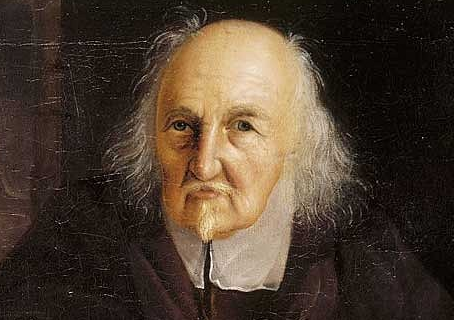Thomas Hobbes Psychological Egoism
Psychological egoism is the position that we always do that act that we perceive to be in our own best self-interest. That is, we have no choice but to be selfish. We cannot be motivated by anything other than what we believe will promote our interests. I always try to promote my self-interest, and you always try to promote your self-interest; that is psychological egoism.
“Every voluntary action is a desire for one’s own welfare”
This description explains of human nature; that is, it maintains that all people act only in ways that improve their own self-interest. Psychological egoism asserts that all human action is motivated by selfish-desires. It signifies that concern for another’s happiness is a means to one’s own happiness. Thus, it rules out the existence of noble and generous actions. It also asserts that humans are not capable of any other motive than their own self-interest.
Hobbes Psychological egoism
Thomas Hobbes was a Psychological Egoist and had a way of systematically re-interpreting “altruistic” motives. Two examples:
Charity
- Acts of charity are really a demonstration of power. By helping others, we show ourselves to be more resourceful than others, because we can take care of ourselves and have plenty to spare.
Pity
- We pity others because we imagine ourselves in their place. Helping others out of a sense of pity is really an attempt to assuage our fear of how we might end up and help to ensure that others will help us if and when the time comes.
In no case, according to Hobbes, we act out of concern for the welfare of others. For Hobbes, human action is predominantly motivated by self-interest. There is a drive in us to survive at all costs that is better for all of us, individually and collectively. Satisfaction is the goal.
From this interpretation, it may be inferred that we all always act in such a way as to maximize our own self-interest. He says moral codes don’t work only if few obey it.
Hobbes ruled out the possibility of morally obligatory acts of altruism. He established a moral obligation toward maximizing our individual self-interest. Specifically to perform morally egoistic acts that lead to our individual survival. He says we act altruistically only with reasonable effort, because it follows that it is morally permissible to act entirely out of self-interest. He stated “Do to others as you would have them do to you, “for doing good to others will help ensure that they do well to us.”
Hobbes argues that if people existed outside of any society, without laws or agreed-on morality, in a “state of nature.” There are no common ways of life, only violence settles conflicts, people are unreliable and show unpredictable behaviour. Further, they are fundamentally selfish and follow their own inclinations and interests, tending to act, react and overreact in fearful and violent ways. The result of life in this state of nature is chaotic anarchy where life is “solitary, poor, nasty, brutish and short.”
To prevent violations, Hobbes proposes a strong government with powerful law enforcement and an effective system of punishment. The threat of being caught and punished should function as deterrence to crime. People must believe that offences against the law are not in their overall interest.


